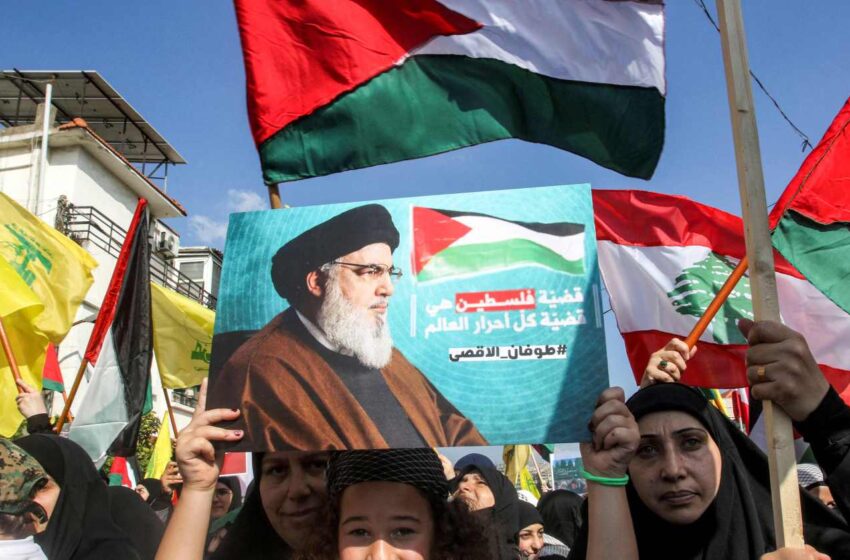Hezbollah: A Powerful Player in the Middle East

Hezbollah, meaning “Party of God”, is a significant force in the Middle East. This Iran-backed Shia armed and political group was formed in 1982 to fight Israel’s occupation of southern Lebanon. Today, it is one of Israel’s biggest foes in the region and a major player in Lebanon’s sectarian political system.
Recent Developments

Recently, Hezbollah has been involved in several significant events. On October 9, 2023, Hezbollah fired a barrage of rockets into Israel after at least three of its members were killed during an Israeli bombardment of southern Lebanon. This incident has escalated tensions on Israel’s northern border.
In another development, Hezbollah fighters have been involved in border clashes with Israeli forces. The group warned its adversaries that it was “thousands of times stronger” than before3. These incidents have raised the prospect of a broader conflict in the Middle East.
Hezbollah’s Strength

Hezbollah has significantly improved its military capabilities over the years. The group now boasts precision rockets and says it can hit all parts of Israel. The United States estimates that Iran has allocated hundreds of millions of dollars annually to Hezbollah in recent years.
Today, Hezbollah is estimated to have at least 60,000 fighters, including full-time and reservists. The group also increased its stockpile of missiles from 14,000 in 2006 to about 150,000 now.
Can Hezbollah Afford to Go to War?
As tensions escalate, observers are questioning whether Hezbollah can afford to go to war with Israel. While opening a new front against Israel could relieve pressure on Hamas and beleaguered civilians in Gaza, it could also be devastating for Lebanon and costly for Israel.
Hezbollah continues to be a major player in the Middle East. Its actions and decisions significantly impact regional stability. As tensions escalate, the international community is closely watching Hezbollah’s moves.
Iran support to Hezbollah over the years

Iran has been a significant supporter of Hezbollah since its formation in 1982. Here are some key ways Iran has supported Hezbollah over the years:
- Financial Support: Iran has provided substantial financial aid to Hezbollah. In 2010, it was reported that Hezbollah received $400 million from Iran. In 2011, Iran earmarked $7 million to Hezbollah’s activities in Latin America. The State Department estimated that Iran gave Hezbollah $700 million a year.
- Military Support: Iran’s Revolutionary Guards and the elite Qods Force have provided arms, training, and financial support to Hezbollah. This support has helped transform Hezbollah into a powerful militia.
- Political Support: Iran has backed Hezbollah politically, helping it become an important player in Lebanon’s sectarian political system.
- Operational Support: Iran has shaped Hezbollah into a significant deterrent against Israel. This operational support has broadened Iran’s appeal generally in the Arab world.
- Investment in Organization: Iranian investment in Hezbollah has increased over the years with Hezbollah’s transformation into a hybrid terrorist organization that operates a welfare system and a political party alongside its military-terrorist wing.
It’s important to note that this support has had significant implications for regional stability in the Middle East.
Hezbollah’s role in Lebanon over time
Hezbollah, meaning “Party of God”, is an Iran-backed, Shiite Muslim political party and militant group based in Lebanon. Its role in Lebanon has evolved significantly over the years.
Origins: Hezbollah was founded in the 1980s amid the 15-year Lebanese Civil War. It emerged with the help of Iran during the Israeli occupation of Lebanon in the early 1980s. Its ideological roots stretch back to the Shia Islamic revival in Lebanon in the 1960s and ’70s.
Military Force: After Israel withdrew from southern Lebanon in 2000, Hezbollah resisted pressure to disarm and continued to strengthen its military wing, the Islamic Resistance. Today, it controls much of the Shiite-majority areas of Lebanon, including parts of the capital, Beirut.
Political Power: Hezbollah has been a fixture of the Lebanese government since 1992, when eight of its members were elected to Parliament. The party has held cabinet positions since 2005. Despite losing their majority in Lebanon’s 128-member Parliament in recent elections, it remains the dominant party of the Shiite community and an extremely powerful armed group.
Global Influence: Hezbollah has been blamed for multiple terrorist attacks on Jewish and Israeli targets abroad. Its reach isn’t limited to Lebanon, with evidence of Hezbollah operations in Africa, the Americas, and Asia.
Current Situation: In recent years, long-standing alliances with Iran and Syria have transformed Hezbollah into an increasingly effective military force. However, Hezbollah officials and other leaders in Lebanon are facing public discontent as the nation verges on failure, and Hezbollah’s political power could be shrinking.
In summary, Hezbollah has evolved from a guerilla group into a major political and military force. It has used its military strength, political power, and grassroots popularity to integrate itself into Lebanese society



